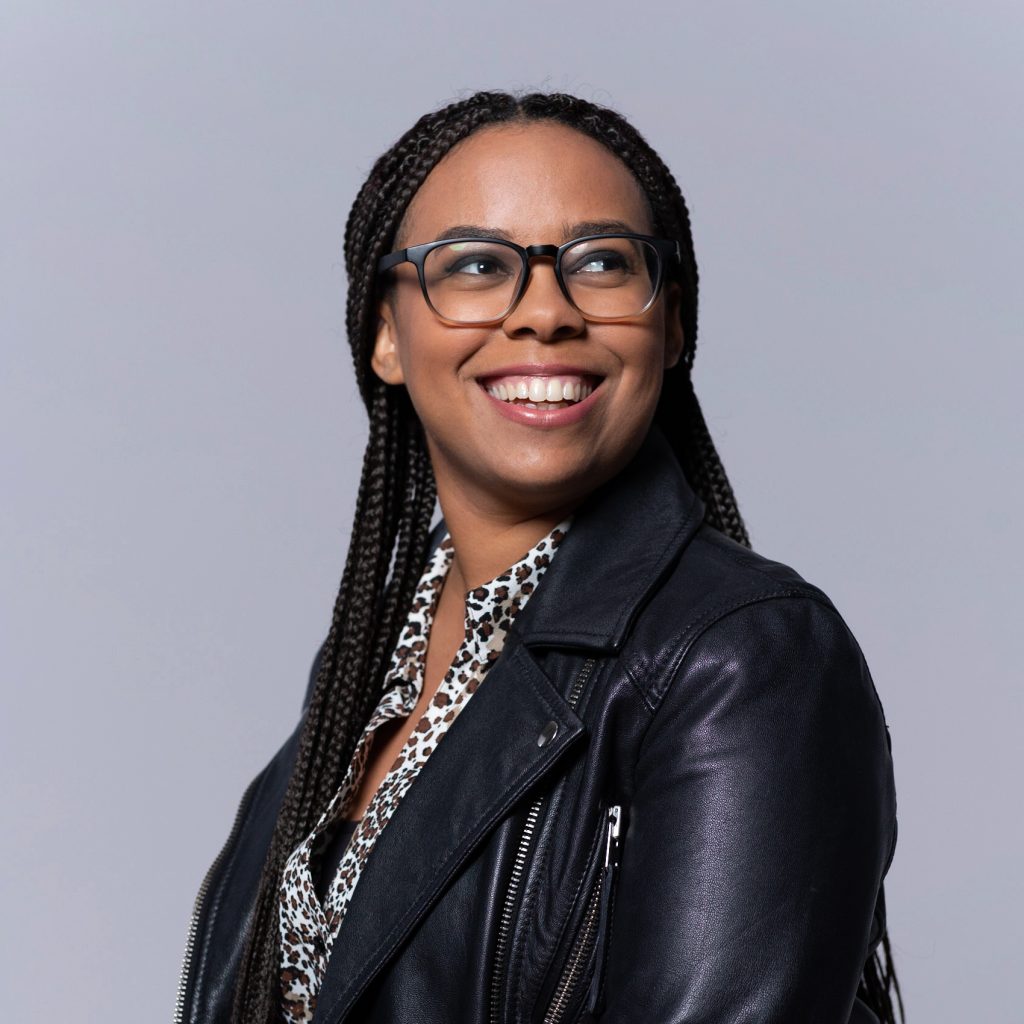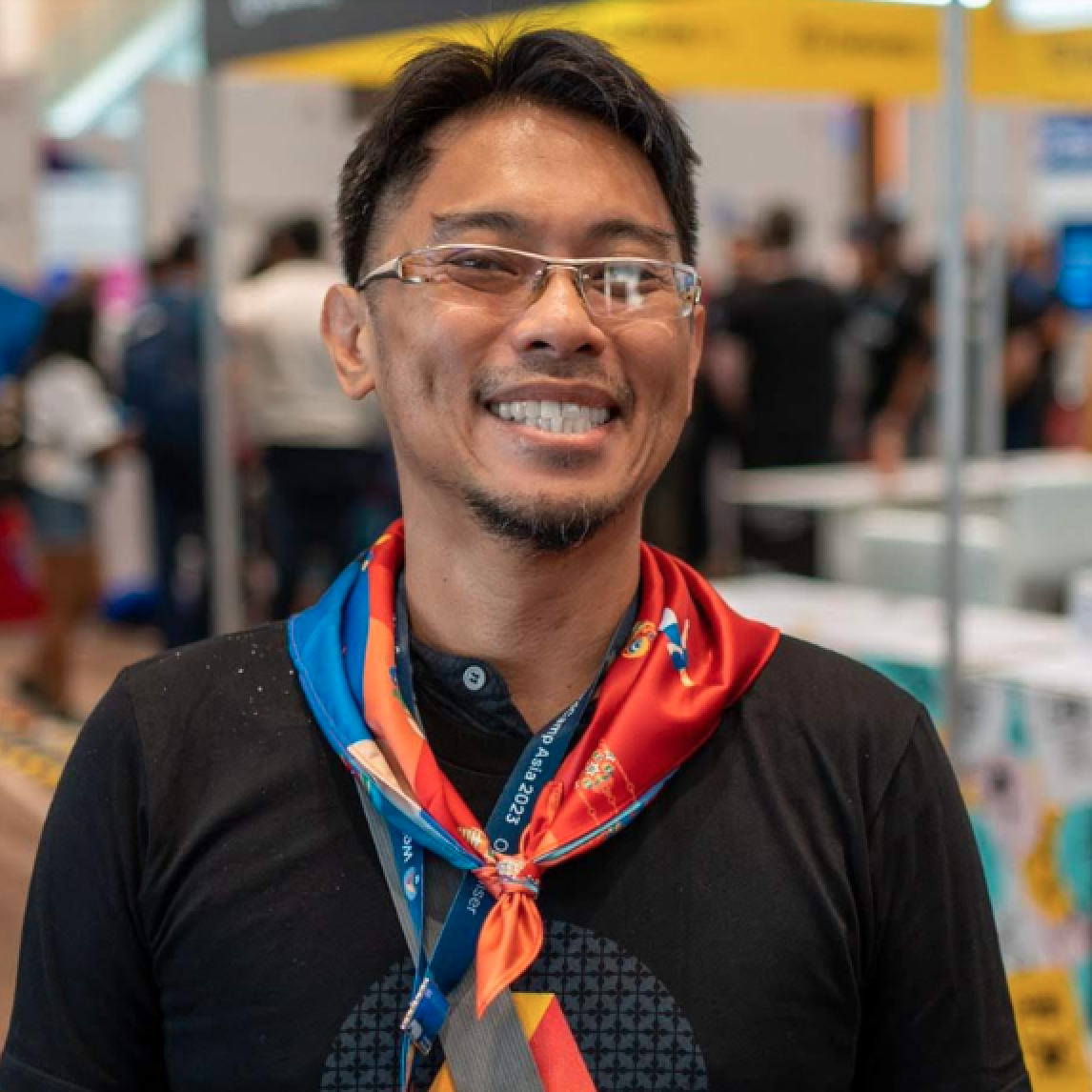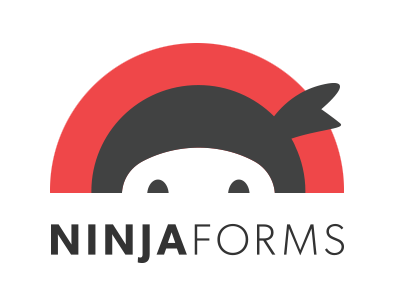Show Notes
In this week’s episode, Allie chats with Oneal Rosero: Community Manager, WCAsia speakers team organizer, Training Team faculty Admin, and facilitator for #WPDiversity APAC. Oneal and Allie spent time at the Community table during Contributor Day at WCAsia talking all things diversity in WordPress and in this episode, take a look at how the event accommodated a diverse set of attendees.
Episode Transcript
Allie Nimmons:
Welcome to the Underrepresented in Tech podcast, hosted by Michelle Frechette and Allie Nimmons. Underrepresented in Tech is a free database, built with the goal of helping people find new opportunities in WordPress and tech overall.
Good morning, Michelle.
Michelle Frechette:
Good morning, Allie. And good morning, Andrea.
Allie Nimmons:
Good morning, Andrea.
Andrea Middleton:
Thank you.
Allie Nimmons:
Welcome to the podcast, everybody. Today, we have a very special guest. And this is one of the first times that me and Michelle are talking to the guest together, which I’m really, really excited about.
Michelle Frechette:
Me too.
Allie Nimmons:
We have Andrea Middleton on the podcast today, who is one of my WordPress heroes. Andrea, can you tell us a little bit for the people who don’t already know? I don’t know who could not know you are. But for the people that don’t already know who you are, could you tell everyone a little bit about you do and what you do in the general WordPress world?
Andrea Middleton:
Yeah, absolutely. My name’s Andrea Middleton. I’ve been an active member of the WordPress community since 2011. I work for Automattic and my time is 100% dedicated to the WordPress open source project. I started out implementing a brand new program in 2011, which was a WordCamp program. We had already had WordCamps at the time, but we were creating some support structures and some expectations to support event quality. And I implemented that, and the community team has grown and grown since. And at this point, my role is more supporting the community team as well as other teams that run programs in the WordPress open source project. And I’ve been very fortunate to do this work for a really long time and feel really grateful that I get to work with people like you.
Michelle Frechette:
Fantastic. Well, Allie, I don’t know if you know this, but Andrea was my catalyst into everything that I do in WordPress. So if you’re listening to this and you love what I do in WordPress, you can thank Andrea. If you hate my presence, you can blame her, but…
Allie Nimmons:
I’ll take that. I’ll take it.
Michelle Frechette:
At the first WordCamp US, I sat down with her. Somebody said… I was talking to, I think it was… I can’t remember who I was talking to. [Nile 00:02:36]. And I said that I was thinking about having WordCamp Rochester. She’s like, “Well go talk to Andrea Middleton so you can become an official chapter and get that started.” And so I sat down with Andrea and I said, “We’re thinking about doing one in a year or two.” And she’s like, “Why wait? Why not just do it now?” And I was like, okay. And here we are.
Allie Nimmons:
It’s funny. I was going to say something very similar, that I guess indirectly, I have Andrea to thank because WordCamp Miami was my real… I’d been using WordPress already, but that was my on ramp into the community, and opened my eyes to all of the people that are a part of the community and all of the different things that there are to do and the people that there are to connect with. I had no idea until I attended my first WordCamp what the WordPress community actually was. So I think a lot of us unknowingly maybe have Andrea to think for getting us into what makes WordPress so amazing, because I think it’s super accessible to learn what that is through a WordCamp.
Michelle Frechette:
Which kind of brings us back into our topic, right? So I often say WordPress is not just open source software, it’s an open source community. And that means it really is open and accessible to everyone. Now, everyone doesn’t always feel like it’s open and accessible as far as the ability to know how to code and how to get involved. And sometimes maybe we as a community fall down and don’t remember to invite people in the same kinds of ways to different parts of the community. But I had never coded before I joined the WordPress community and I published a plugin in the repository last year. It was a silly little plugin and it’s fun, but I did it and I did it over my lunch hour, of all things.
And then I was like, this is a cool thing. So if I could do it at 50-something years old with a background in religion and philosophy and education, other people can do it too. But that doesn’t mean that it’s always an easy task for people to get involved. They don’t always know the history, they don’t always know the steps forward. And so we wanted to invite Andrea in today to talk a little bit about what the open source community, what the open source project is and how to overcome some of those barriers to entry.
Allie Nimmons:
Yeah. Specifically, I want to zero in on that too. Our last episode, we were talking about the whole open source versus college debate, whether there even really needs to be a debate, right? Why not both or, you know. But this was floating around in our community a little bit. So I would be really interested, Andrea, to hear your perspective on that debate. Or even more generally, what Michelle was talking about, but aimed at younger people. We have a lack, I feel like, right now of community members, really active, enthusiastic WordPress community members in their twenties right now. And I’ve seen a lot of people cite that as a problem. So I’d be really interested to hear how you feel about that problem and what we as general community members can do to try to fix that.
Andrea Middleton:
Yeah. Well that’s a broad scope of topic. So I will start with, I’m an educator in my soul, and so I think college education is great. I think it is less important necessarily, in most professions from an information gathering standpoint, but a lot more important from a learning how to learn standpoint, and a great kind of safer space to grapple with more adult expectations and responsibilities. And I know that universities and higher education doesn’t… It moves slowly and costs money. And so from a diversity, equity and inclusion perspective, higher education being a requirement for certain things really impacts how diverse and inclusive certain professions and disciplines are. One of the things I really love about open source is that we don’t have that barrier. Josepha Haden Chomphosy, who’s one of the most inspirational people that I work with has a great saying that I love, which is “We don’t call the qualified, we qualify the called.”
So that means you don’t have to have a degree, you don’t have to have even a certain set of experiences or knowledge to contribute to WordPress. You come with your enthusiasm and then the project does its best to set you up for success and give you access to the resources that will make you successful in helping WordPress meet its goals. And that’s really open, and that’s something that makes me really happy. Now, do we do the best job in the world at it? I mean, nobody in WordPress is satisfied with any status quo so I think everyone that you meet will say, “Yes, but it could be better.” And I’m like, “Well, yes, it could.” Can’t everything. But having that as a goal, I think, is something that makes me really proud. I don’t think it’s necessary to say, “Don’t go to college, you idiot, come over here to open source,” because people learn different things in different places.
And nobody learns the same thing from the same experiences. So that kind of argument just doesn’t, I don’t know, it doesn’t engage me because I think it’s based on misconceptions and poor assumptions. On the topic of young people, people in their twenties and WordPress, I am a bit of an outlier here in that I’m not that worried about that. I think that WordPress is a very established open source project that is immense in its scope. And so I can imagine a lot of reasons why people in their twenties might not be called to working on the scope of problems that we are facing on a text act that we’re using. I think certainly as WordPress continues to, depending on how you feel about the word modern, modernize by moving into more JavaScript, potentially we will gather more contributors who are passionate about solving problems with a certain computer language.
And again, not all 20-year olds are the same, but I think that in WordPress, we really do our best to move fast enough to be timely and relevant, but slow enough to be ethical. And I think some of the slowness that rightly, and I’m very passionate about that slowness, belongs in WordPress because of our enormous scope of users and people who really depend on WordPress to be stable and reliable work, feeling really engaged with that level of a mandate doesn’t always fit with people who are like, “I want to explore everything and make an enormous impact right away.” You could make a big impact in a smaller scale quickly here, but as far as making a large impact on a large scale, sometimes it takes more time, just because we’re a really mature product. And that’s why I think our contributor base skews older, because I think as you gain more experience, you get hungry for more complex challenges. I don’t know if that answer resonates with you all or not.
Allie Nimmons:
Yeah. That makes a lot of sense. I feel like when I think about this problem or not problem, I’m thinking more about… So I personally don’t really consider myself that much of a contributor as far as contributing to… Michelle and I debated this in the last episode, what makes a contributor? I tend not to spend most of my time contributing to the project as far as contributing to core, contributing code, that sort of thing. This, what we’re doing literally right now, is my way of contributing to the community; being loud in conversations about things that are going on is my way of contributing to the community. And it makes perfect sense what you just said about why the contributor base tends to skew a little bit older.
I would just really love to see younger voices and younger opinions and younger points of view. And when I even say younger, I mean my age; I’m 29 and I’m one of the youngest people that I speak to on a daily basis, really. So I really would love to see my generation, my age group, presenting ideas toward… Whether it’s something like the big MAGA hat debate that we were having a couple of years ago, that’s something that I felt really affected and reflected upon the general mindset of the community as whole. And I don’t know, I think that’s more the way that I see the quote unquote problem is I’m sure that there’s tons of people my age using WordPress, building things with WordPress, and innovating with WordPress, and experimenting with WordPress. And I want to know what they think. I want to know how they feel.
Andrea Middleton:
Yeah, me too. Me too definitely. And I think, I’m hopeful that some of the… Over the next year or so, as the scope of the marketing contributor group expands, maybe we’ll be able to do more targeted outreach to areas of the WordPress user base that doesn’t know about the WordPress contributor opportunities. And that’s a major opportunity for marketing, for sure.
Allie Nimmons:
So, yeah. That was another thing we were talking about is what makes a contributor? I had always had in my head, this idea of when you say “I’m a contributor,” it is like, I am somebody who sits on Slack and I go to the Slack meetings and I do quantifiable things that I can point to a place in the new WordPress release and say, “I did that.” But that’s not necessarily true. When somebody asks you, “Well, what does contributing to WordPress mean, Andrea? What are you asking me to do?” And you say, “Oh, I’d love for you to contribute,” what do you answer? What’s your answer to that question?
Andrea Middleton:
Well, that is an enormous question. And it’s a question I’ve been grappling with for a number of years. I was part of the group that helped launch the Five for the Future pledge program. And in discussions of that program, we had a big problem with like, hey, once you start quantifying what is a contribution and what isn’t, that is sensitive. That gets into peoples identity at WordPress, and that’s tricky. And we had to do a little bit of it here and there, but luckily or unluckily not a ton. At its core, I consider any contribution to WordPress as an effort to help the CMS reach its goal to democratize publishing. At its base, that is a contribution, helping WordPress move toward its goal: to grow, to bring open source to more people on the internet, to help people move from closed platforms to open source platforms, and to help WordPress democratize publishing worldwide is a contribution.
If we’re talking about contributing to the WordPress open source project, we’ve got like 18 teams and a major number of them are not code- based. And that was, when I was listening to y’all’s episode last time, I was thinking, ach, I need to make sure we get this written down. I mean, the history of those contributor teams, I think, is super interesting because WordPress is unusual in that we document the contributions of people who contribute more than code, and when that launched in 2011, when we launched the Make network, and codified, I was like, yes, these are teams that work on WordPress, and they include support, documentation, community, translation, et cetera, et cetera, et cetera, testing.
That was a huge canonical moment, I think, for open source; the fact that we had badges for people, the fact that we had teams that had public recognition in the project that wasn’t just core is an enormous big deal in open source. And there are lots of open source projects out there that are like, “Can we have that please? Come on, y’all. Can we just dignify the work of people who explain how to use the product, who help people figure out their problems with the product, who create onboarding ramps to the product through events and meetups and stuff like that?” So I am very, very proud of all of the work that I’ve done to make WordPress recognize that it’s not just the code, it’s helping people get to the code and unlocking their ability to do what they want with the product that moves WordPress toward its goals.
And I think also there is a large community and kind of society in WordPress. And I also love the fact that we don’t need to make everything official. You can help make WordPress more successful through unofficial efforts; through calling people in when you see them hurting people with their discourse; through inviting people and exposing for them the stuff that they can do with WordPress; by spreading the word, by helping people move off of closed platforms onto open platforms; and by holding important discussions in public, about things that you think WordPress should care about. The advocacy portion is also, in my opinion, a real contribution to the success of WordPress, because open source depends on a multitude of voices. If we’re ever going to expand to be where we want to be, we’ve got to listen to a lot of people. And when you invite more people in and amplify the voices of people who say, ‘Hey, I’m not represented here, but this is what I think,” you’re helping WordPress meet its goals.
Michelle Frechette:
So when you look at organizations like Underrepresented in Tech today, Big Orange Heart, which helps with the mental health aspect of things, and HeroPress, which helps tell other stories. And then other podcasts, even like mine and Joe Casabona and all those people who are… Those are also contributing factors. They just might not be in a specific Make channel. But they’re actually contributing to the community as far as I’m concerned. But it sounds like you agree with it.
Andrea Middleton:
Yeah.
Michelle Frechette:
Yeah. That’s very cool. We are running out of time. Is there anything else you’d like to say before we sign off and let you have the rest of your day back?
Andrea Middleton:
I want to encourage people, if you are looking to accomplish something in WordPress, or with WordPress, to really take a little bit of time to understand open source. What I find really gets in people’s way of achieving their goals through WordPress and for WordPress is that they come to open source and WordPress with some misconceptions about how things work here, specifically things like open source really relies on an abundance mindset rather than a scarcity mindset. So thinking more about how can I give more away, so that more is available to everyone? Things like that. Rather than protect and work against the openness that is foundational for WordPress and stuff like that.
So the thing that I love to remind people, as they’re coming in and exploring our community where so much can be accomplished is do a little bit of reading to understand how open source communities work and recognize that when decisions are being made that affect 40 plus percent of the internet, not everyone gets their way. We’re solving for really big problems. Luckily, WordPress is flexible enough through plugins and themes to solve very, very specific problems that sometimes core has to address a majority, which then makes our very autonomous, independence-loving individualists sometimes feel like they’re not being heard. And I cannot say this strongly enough, that it’s not the case. Leadership in WordPress is very, very interested in hearing everyone, but sometimes has to make decisions based on a really huge mandate.
Allie Nimmons:
That’s a really good point. I mean, if we’re democratizing publishing, by definition with a democracy [crosstalk 00:22:12]
Andrea Middleton:
WordPress is not a democracy, but yes. Right.
Michelle Frechette:
Right, right, right. So true.
Andrea Middleton:
[inaudible 00:22:16]
Michelle Frechette:
But as far as if you are listening to this, if you’re a young person, if you’re an old person, if you’re somewhere in between, one of the fastest and easiest ways to start having your voice heard is just go over to the wordpress.org blog, read through some of those posts that are asking for inputs, and comment, because that’s one of the fastest ways you can get involved in the conversation. You can join the Slack, you can start getting involved as little or as much as you want in all of those different teams Andrea mentioned, including WordPress TV. We need people to publish episodes of WordPress TV.
Allie Nimmons:
So much.
Michelle Frechette:
Yeah. It’s a backlog. Yeah, absolutely. So there are tons of ways to get involved. Go to wordpress.org. Find somebody there, find the Make. Hit us up on Underrepresented in Tech. On Twitter, we’re @UnderRepdInTech. And we’ll serve as a resource to help you find your niche and find a way to get involved very quickly. Thank you so much, Andrea, for joining us today. We really appreciate hearing from you. And back to one of your earlier comments about how much is done or not done and whether you feel heard, remember that the glass is half full. Look at the parts that we’re accomplishing. Don’t focus on the empty space unless you could know how we can fill it up.
Allie Nimmons:
Yeah. Yay, all right. [crosstalk 00:23:40]
Andrea Middleton:
Thanks, everybody.
Michelle Frechette:
Thank you.
Allie Nimmons:
Bye.
This episode was sponsored by the following companies. Ninja Forms. Ninja Forms is WordPress form building simplified. Build beautiful user friendly forms that will make you feel like a professional web developer. No code required. If you’re interested in sponsoring an episode, using our database, or just want to say hi, go to underrepresentedintech.com. See you next week.
This episode was sponsored by Ninja Forms. Ninja Forms is WordPress form building simplified. Build beautiful user friendly forms that will make you feel like a professional web developer. No code required.

Allie Nimmons
Host

Oneal Rosero
Guest


